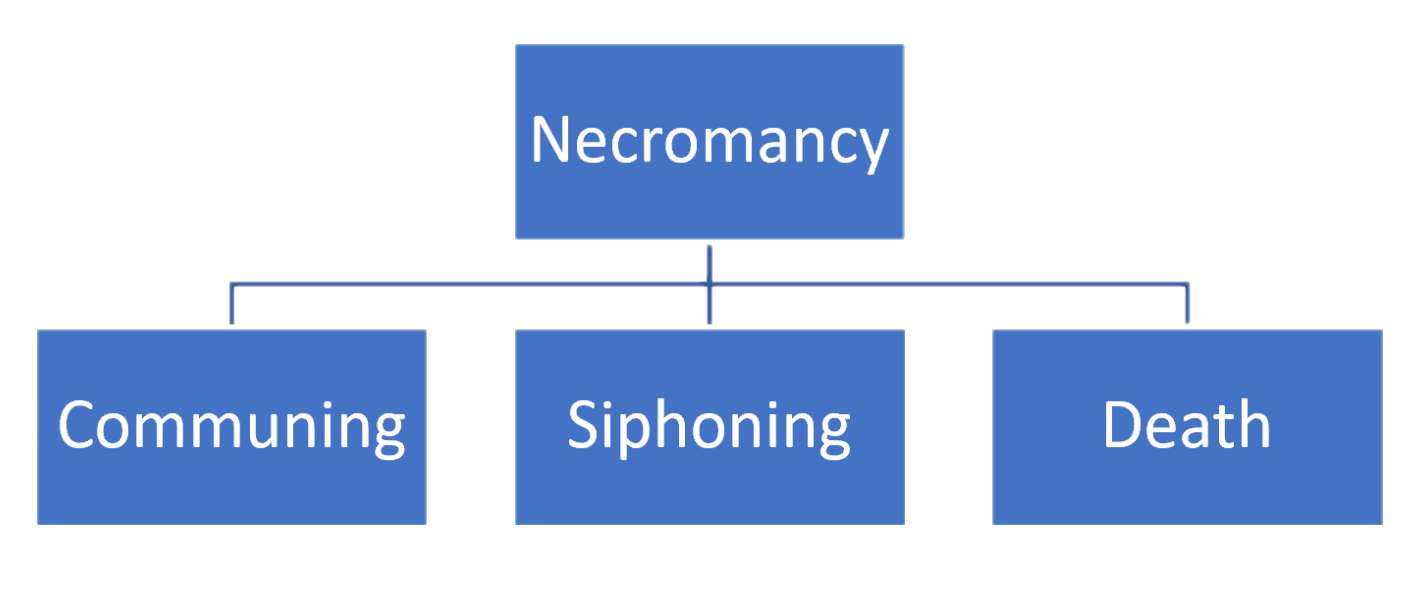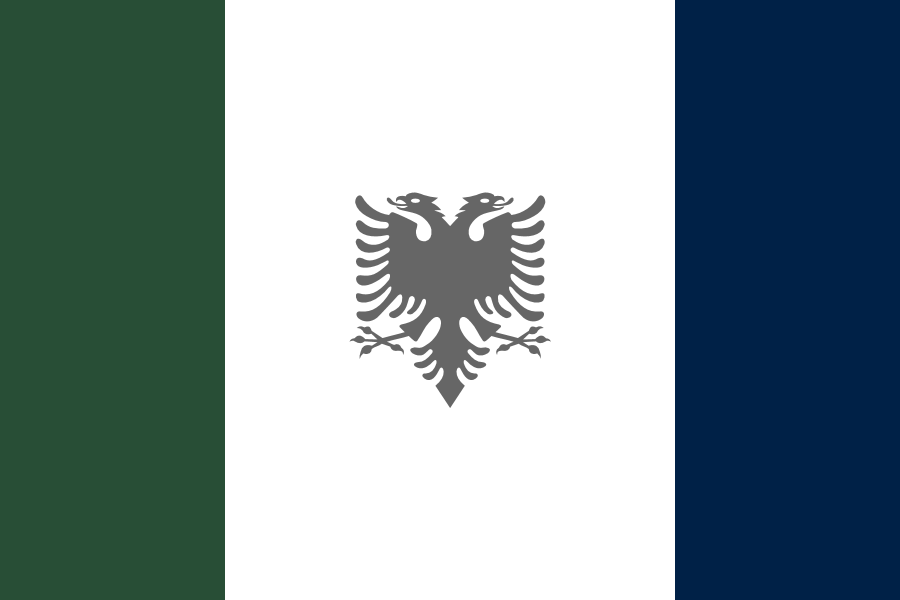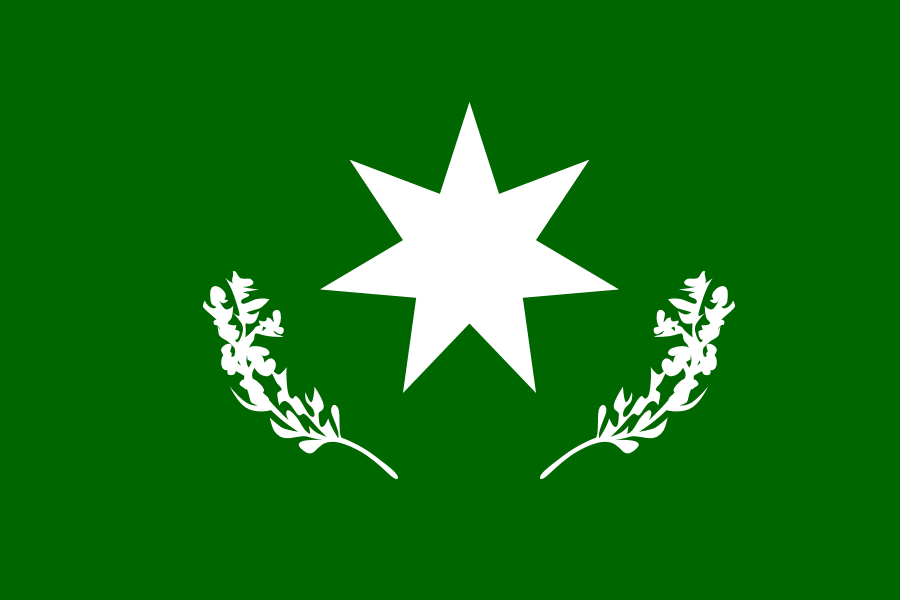Necromancy
Reviled, outlawed, and feared through much of Imbria, necromancy is a controversial form of magic that relies on the power of death, sacrifice, and the energy of the spirit realm.
Necromancy is thought to provide one a connection to Na'arin's Realm, or the underworld and is primarily associated with Necromancy, the only country to embrace and revere this magic.

Communing = talking to the dead
Siphoning = absorbing power from someone
Death spells = offensive spells that cause harm or reduce vitality
Practical applications: Information gathering
Pulling power from the spirit realm, or Na'arin's Realm
Summoning, commanding, or binding wraiths & other spirits
Animating golems (typically requires cooperation of the spirits)
Reanimating corpses (illegal)
Uses / Benefits
Necromancy is particularly useful offensively. These spells are hard-hitting, difficult to counter, and the effects can last quite a long time without the correct intervention.Limitations
Many of the more powerful spells require more prep time than other magic. Necromancy is also dangerous for the caster and others. It can drain the caster's vitality and release malevolent spirits.Types of Necromancy
As with all magic classifications, there is some overlap with other magic types. Some forms of necromancy, like the use of sigils, do rely on blood. Necromancers often utilize blood from a sacrifice as opposed to a living donor, but not always. Other magic types might be used alongside necromancy. There are a few distinct types of necromancy, or subcategories into which necromantic spells fall. Some casters may excel in one area over the others.
by hcraven
The current model of classifying necromantic spells is imperfect, as there is often overlap and debate in this area, and some spells can arguably be categorized into one or more subcategories.
Generally, these can be broadly identified as follows:
Communing
The most basic and least destructive form of necromancy is communciation with the spirits of the dead. This is key for all necromancers but is also practiced more widely. Some people argue whether or not simple communication with the spirit realm should be classified as necromancy, as there is a spiritual aspect to it as well, and it is a major aspect of ancestral magic.Practical applications:
Siphoning
Siphoning spells are designed to drain energy from a target, generally, to boost the magic or life energy of the necromancer. This can involve siphoning small amounts or entirely. The Lifestone Ritual involves the siphoning of a creature's or person's life energy and magic energy into a lifestone which will store that power for later use.Death
This includes a wide range of offensive spells, not all of which result immediately or directly in death. These spells do tend to target a creature's life energy and/or cause great harm to vitality, but can also include physical attacks like necromantic decay. This can also include spells that reduce/harm a witch's ability to use or access their magic.Related Reading
The Fight for a Necromancer Nation
A Necromancer's Rite of Passage
I visit the necropolis as often as I can. It restores the magic.









Comments
Author's Notes
Thank you for reading!